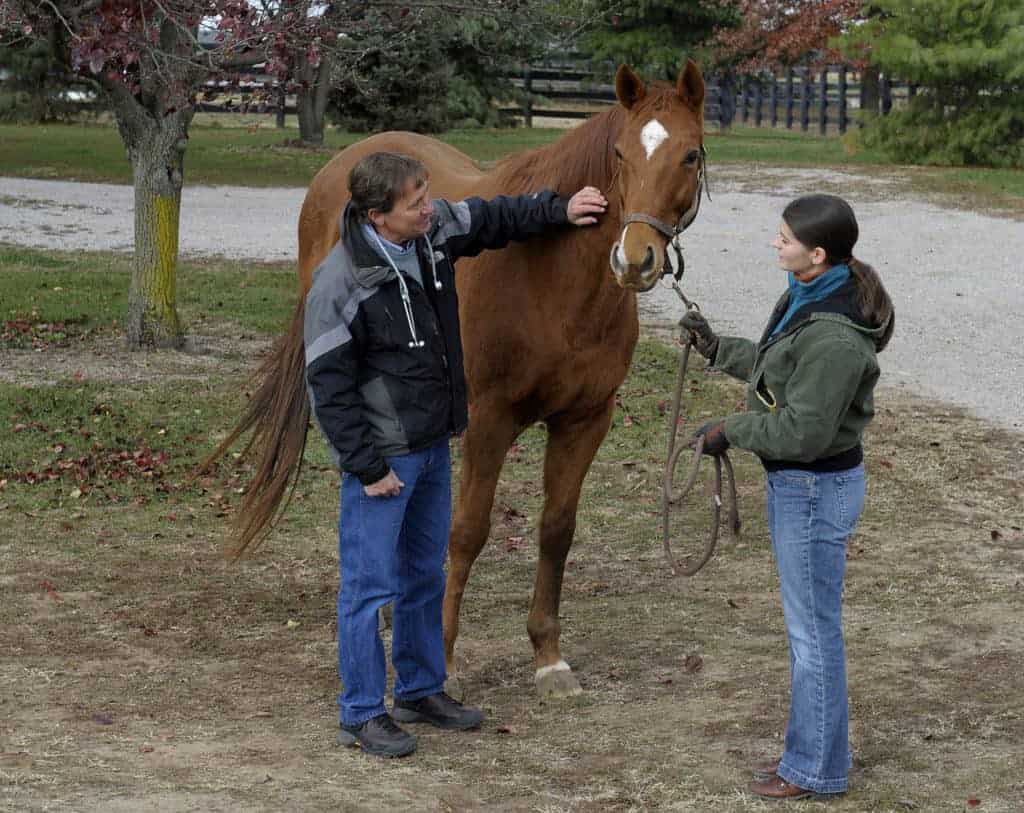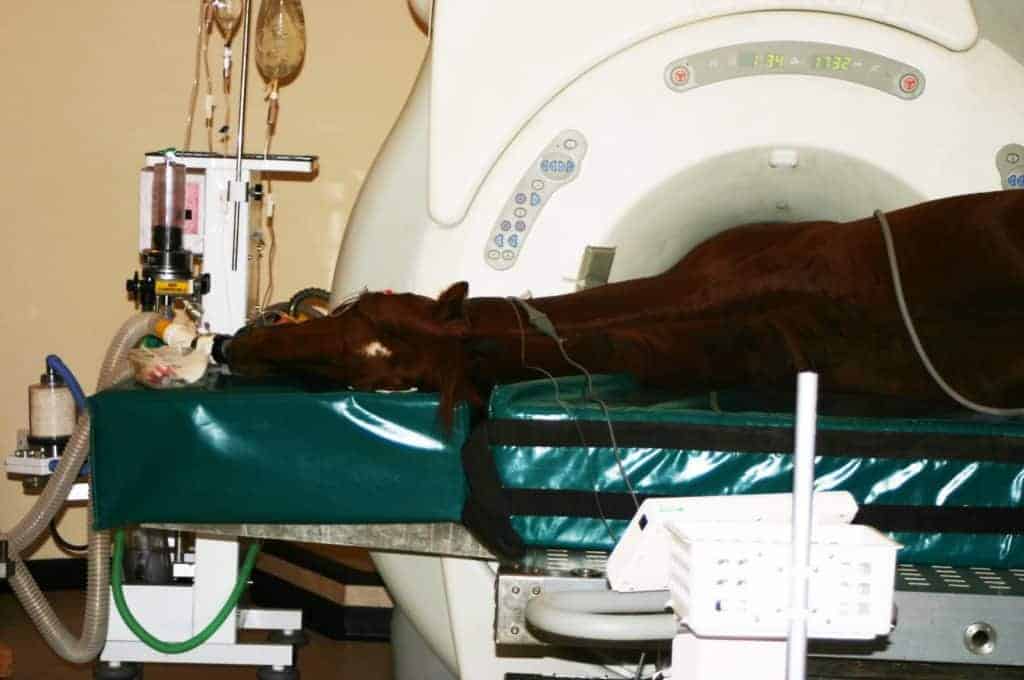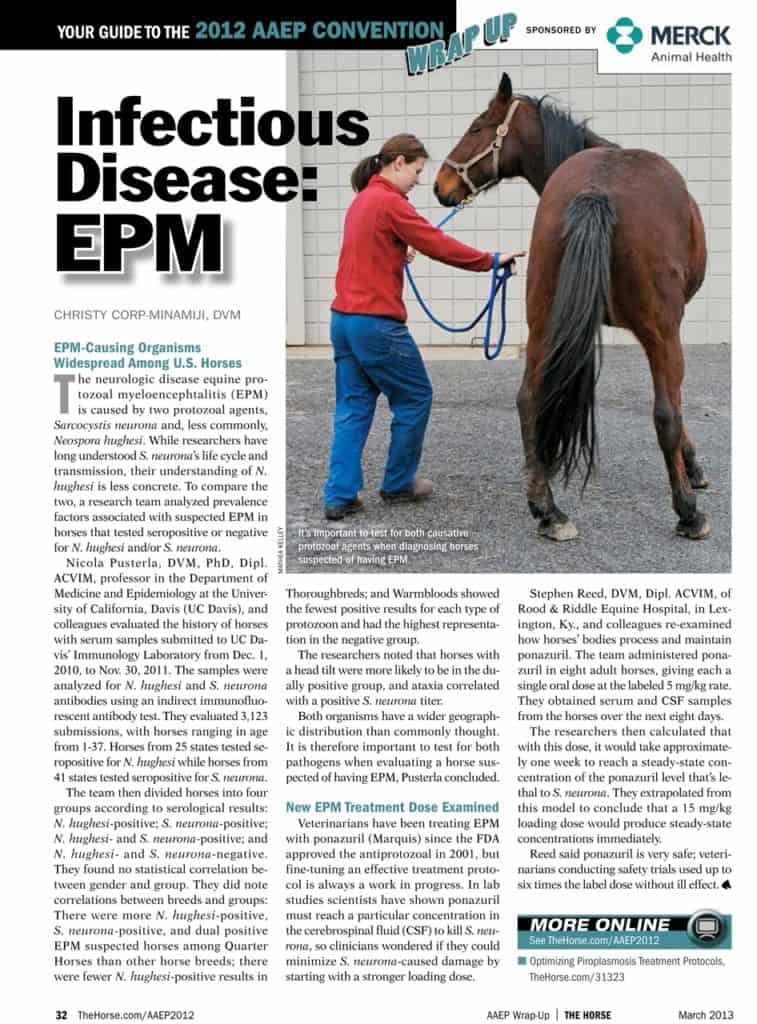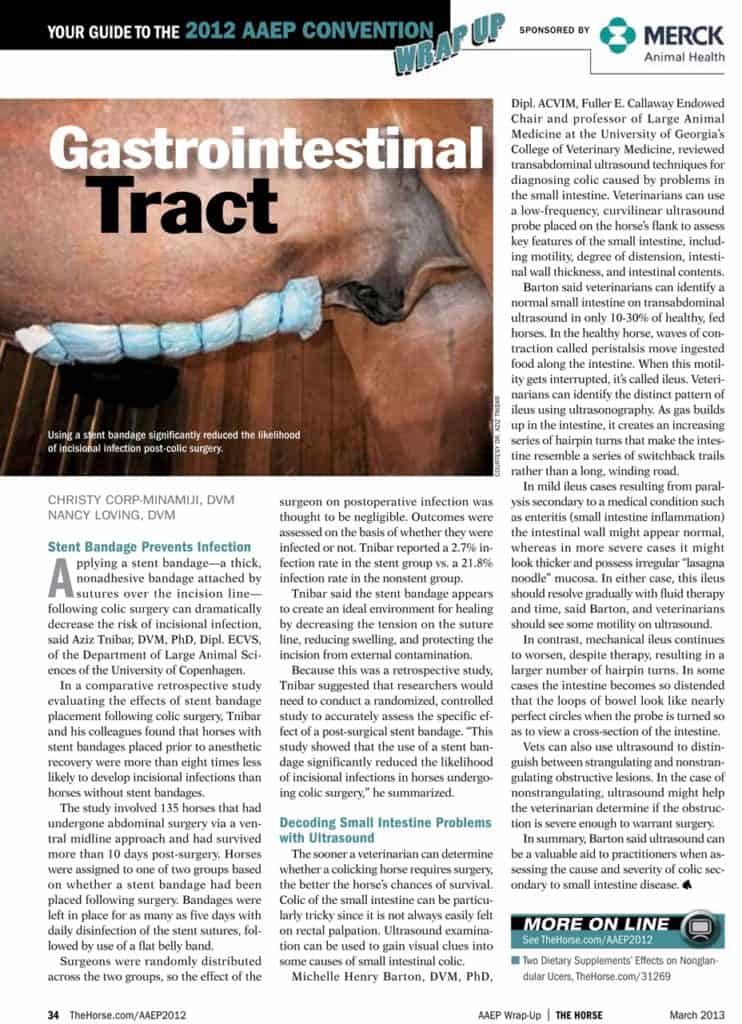
Sample Handling’s Effects on Plasma CO2 Levels (AAEP 2012)
Researchers evaluated sample handling and storage time’s effects on CO2 concentrations in horse blood plasma.

Researchers evaluated sample handling and storage time’s effects on CO2 concentrations in horse blood plasma.

Before extracting a horse’s tooth, owners and veterinarians must consider a number of important factors.

As a licensed profession, veterinary medicine is subject to regulation at the state government level.

Researchers are closer to helping owners and trainers identify if a horse is at risk for soft tissue injury.

Researchers say MRI is invaluable for identifying suspensory ligament lesions and sesamoid bone damage.

Researchers evaluated a new method that could help vets monitor joint infections’ response to treatment.

Choosing a specific stem cell source could maximize treatment efficacy, improving horses’ recovery chances.

Researchers evaluated how blood collection tube size impacts total plasma carbon dioxide (CO2) concentrations.

Learn about the organisms that cause equine protozoal myeloencephalitis (EPM) and treatment options for the disease.

Topics include post-colic stent bandages to prevent infection and decoding small intestine problems with ultrasound.

Learn about the veterinarian’s role in barn fire prevention and emergencies; managing dehydration and exhaustion; and preventing medication mishaps.

Tooth extractions don’t always go as planned, so practitioners must be ready for potential complications.

Learn about the newest research and information about therapeutic joint injections for horses, including hyaluronan (HA), site prep, corticosteroids, infection, and more.

Learn about tooth extraction complications and options veterinarians have for handling tooth extraction failures.

Learn the newest information about stem cell therapy for mare uterine inflammation, superficial digital flexor tendon injuries, and more.

Drs. Lisa Fortier, Stephen Reed, and Pat McCue present recent study summaries. Topics include colic, endocrinology, metabolic syndrome, laminitis, foals, neurologic and muscle diseases, orthopedic therapies, racehorses, and upper airway issues.
Stay on top of the most recent Horse Health news with
"*" indicates required fields